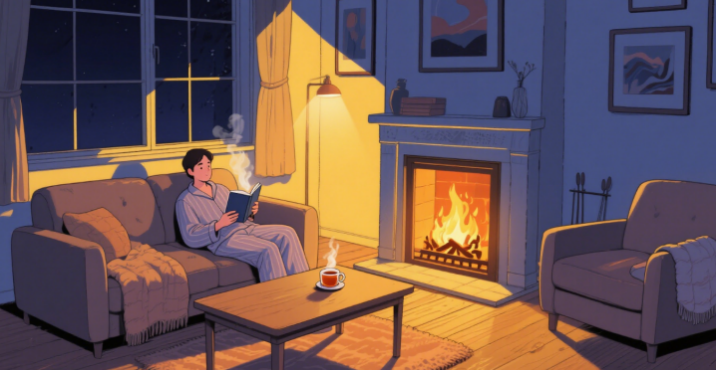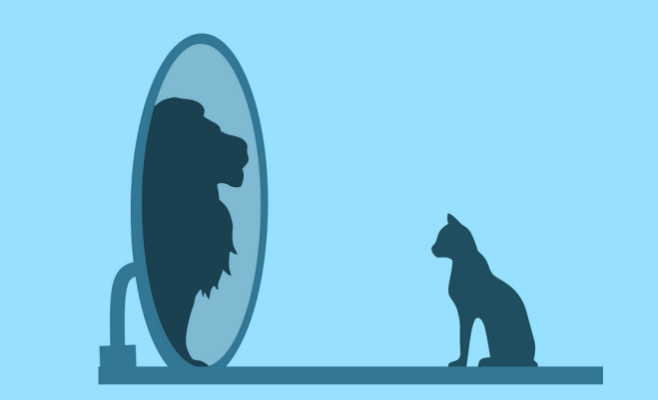As the golden hour fades and twilight descends, do you sometimes feel a subtle shift in your mood, perhaps a prickle of worry or a wave of sadness? While not an official clinical diagnosis, this phenomenon is increasingly recognized as "sunset anxiety" – a feeling of anxiousness that surfaces as the sun goes down. It's like our internal rhythm section, usually synchronized with the day's light, suddenly hits a jarring note as the natural light diminishes. This feeling can be particularly pronounced during the shorter days of winter, when darkness arrives earlier, signaling an abrupt end to daylight hours.

Why might this happen? On the surface, it's partly biological. Our bodies operate on circadian rhythms, an internal clock sensitive to light and dark, regulating everything from sleep-wake cycles to hormone production. As darkness falls, particularly earlier than expected, it can disrupt this natural rhythm, impacting our mood and increasing tiredness as the body anticipates rest. Think of it like a plant that expects hours of sunlight but is suddenly plunged into shade – its systems get confused.
But beyond the biological trigger, deeper psychological currents may be at play. The setting sun can feel like a deadline, amplifying feelings of guilt about not having accomplished enough during the day. There might be regret over missed opportunities to enjoy the daylight, perhaps because work consumed those precious hours. Psychologists note that reduced natural light can also sap energy and motivation, prerequisites for anxiety. Furthermore, the evening brings a reduction in the distractions that fill our busy days. Without the constant hum of activity, the quiet of dusk can leave us feeling more vulnerable, confronted with our thoughts, worries, or even a sense of being alone. It’s like the stage lights dim, and suddenly, we're left with just ourselves in the spotlight.

Yet, this quiet time isn't just a void; it can be an unexpected mirror. Dr. Sarah Boss suggests this increased time after sunset, especially in winter, can be an opportunity for introspection. It allows us to pause and ask: "How is my life looking?" and "Am I truly satisfied with the way I'm living?". Recognizing sunset anxiety can be the first step towards adjusting our approach, turning the challenge into an opportunity for growth and well-being.
So, how can we navigate this twilight zone? The strategies offered by experts aren't complex, but require intention, much like setting a new course on a map. Harnessing natural light is crucial. Exposure, particularly in the morning, helps regulate that internal clock and lift mood. A simple morning walk, even on a cloudy day, provides natural light and triggers endorphins. If getting outside is difficult, consider using a light lamp mimicking natural light – think of it as supplemental fuel for your body clock. Conversely, minimize exposure to blue light from screens in the evening, which tricks the brain into thinking it's still daylight, disrupting sleep – a cornerstone of mood regulation. Switching to softer lighting at night also signals the brain to wind down.

Equally important is creating a comforting evening sanctuary. Prioritize consistent routines that prepare your mind and body for rest. This might involve simple, cozy habits like reading a book, snuggling under a favorite blanket, or enjoying a warm drink. Finally, lean into social connection. Winter darkness can exacerbate feelings of isolation, amplifying anxiety. Scheduling things to look forward to, especially those involving connecting with others, provides anticipation and joy, helping to combat the emotional dip. It's like finding warmth and shared stories around a campfire on a chilly night.
Ultimately, sunset anxiety reminds us of our deep connection to natural cycles and the importance of balancing external busyness with internal stillness. By understanding its roots – a mix of biology, psychology, and modern lifestyle – and adopting proactive strategies like managing light exposure, cultivating soothing routines, and nurturing social bonds, we can transform the fear of the fading light into an embrace of the evening's quiet possibilities.





